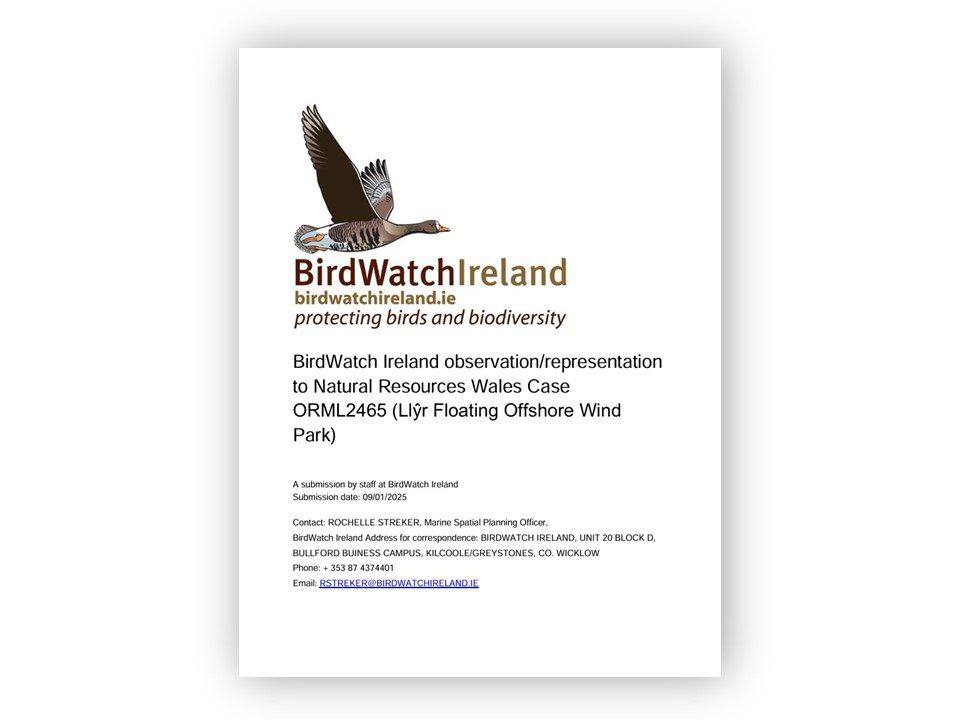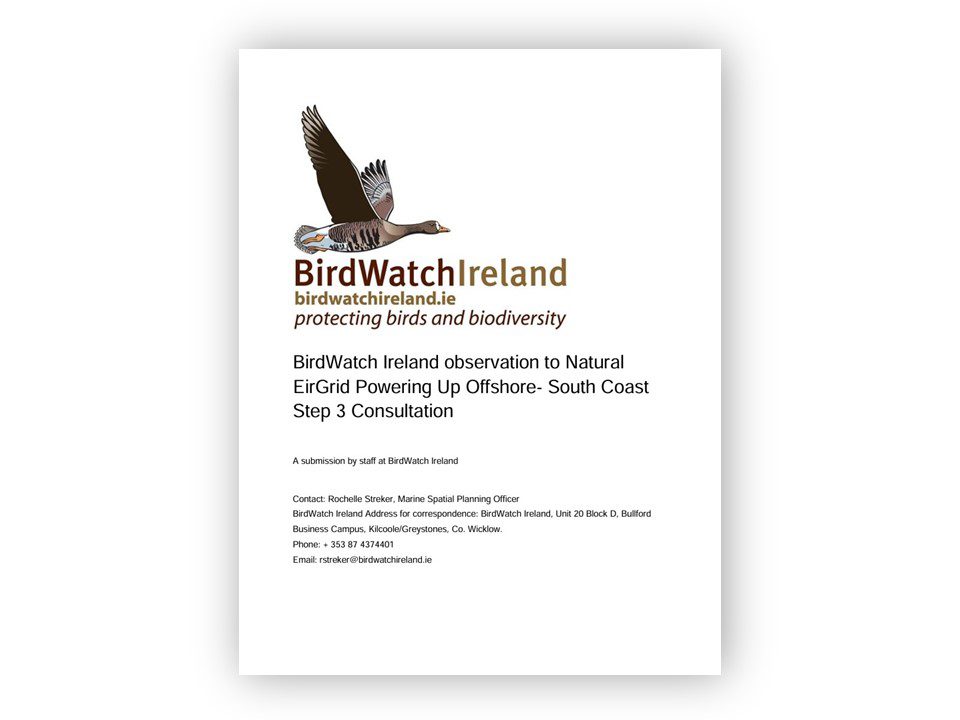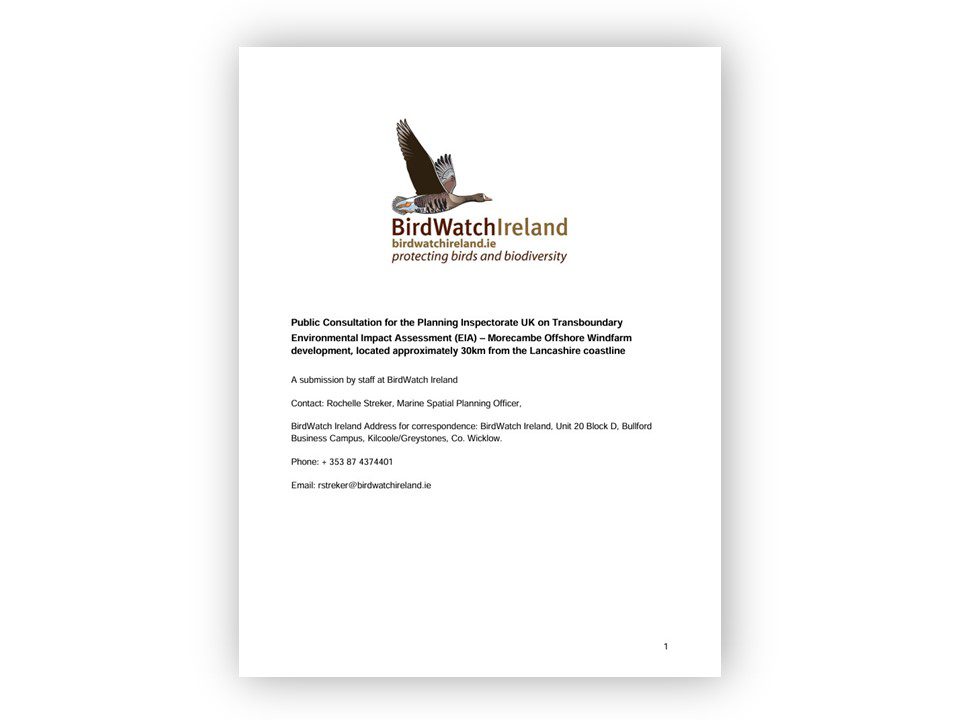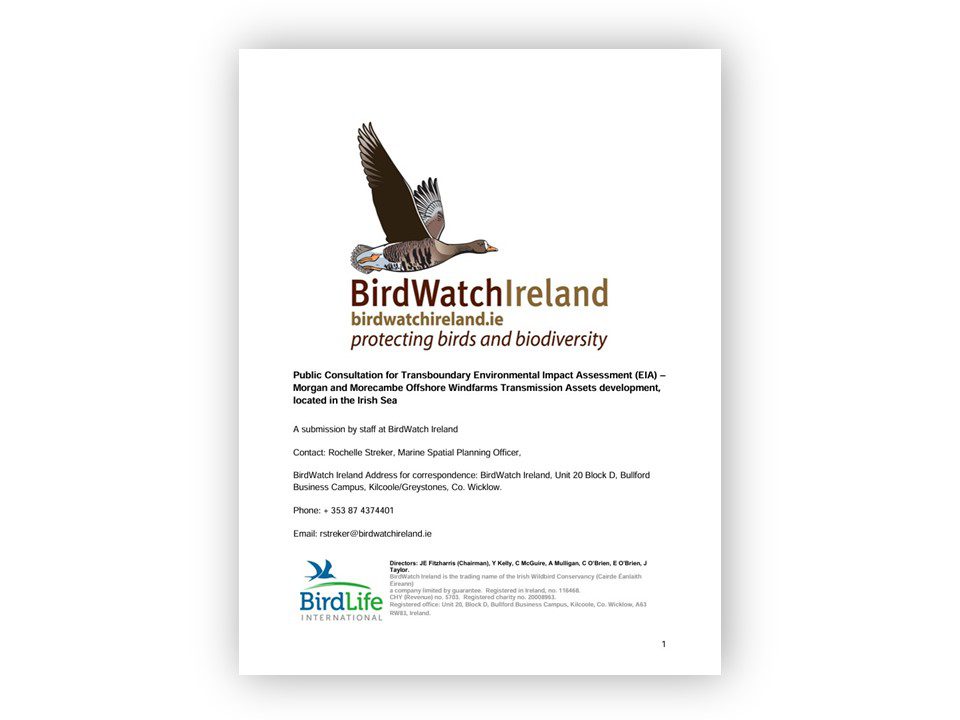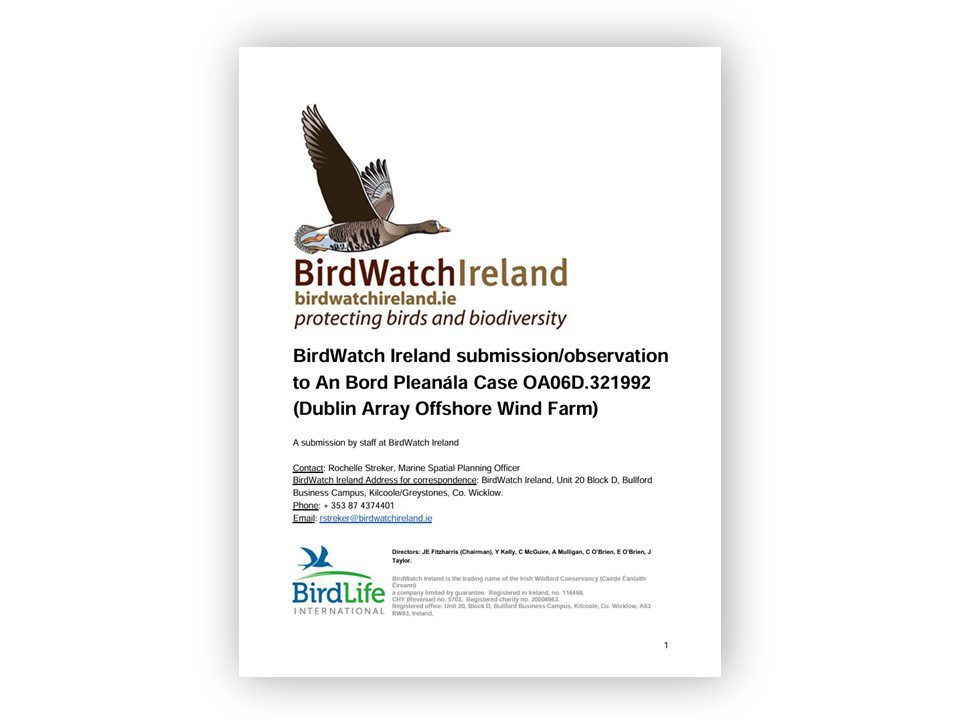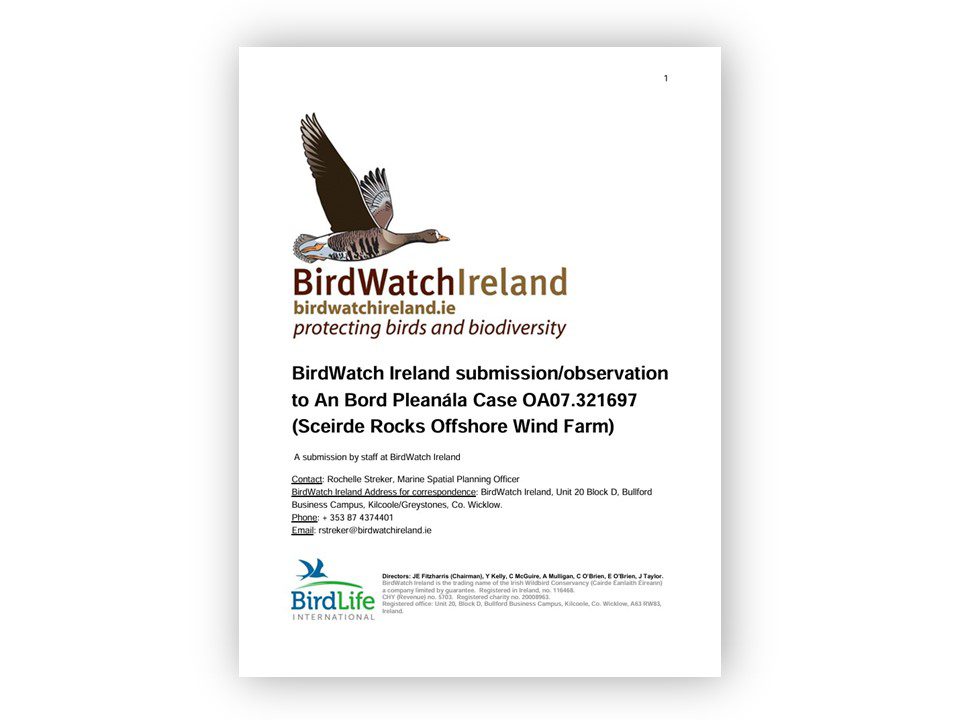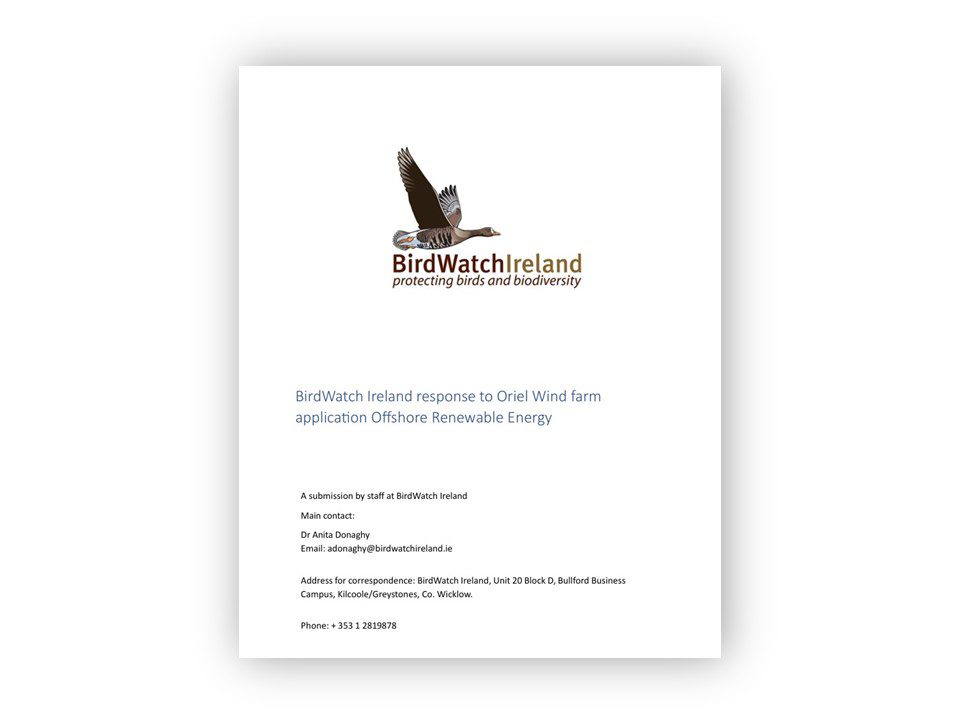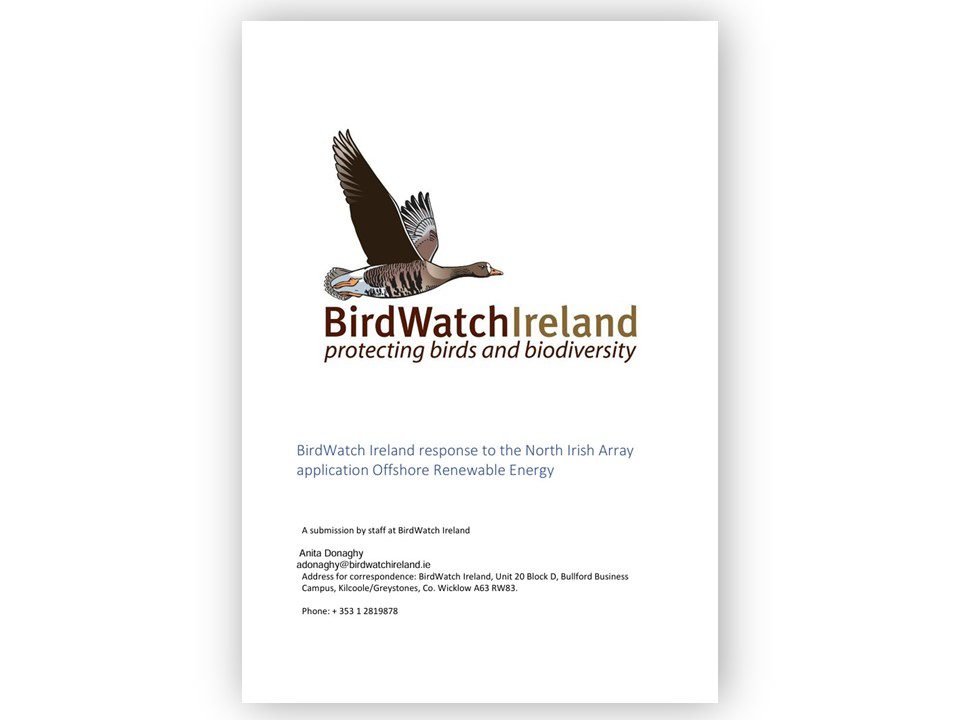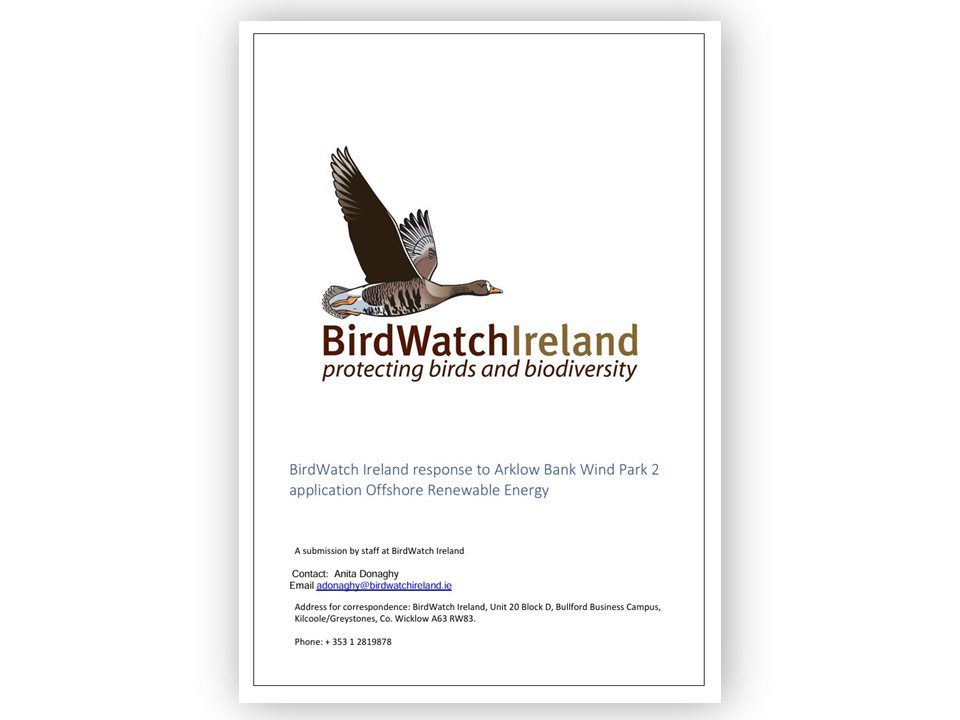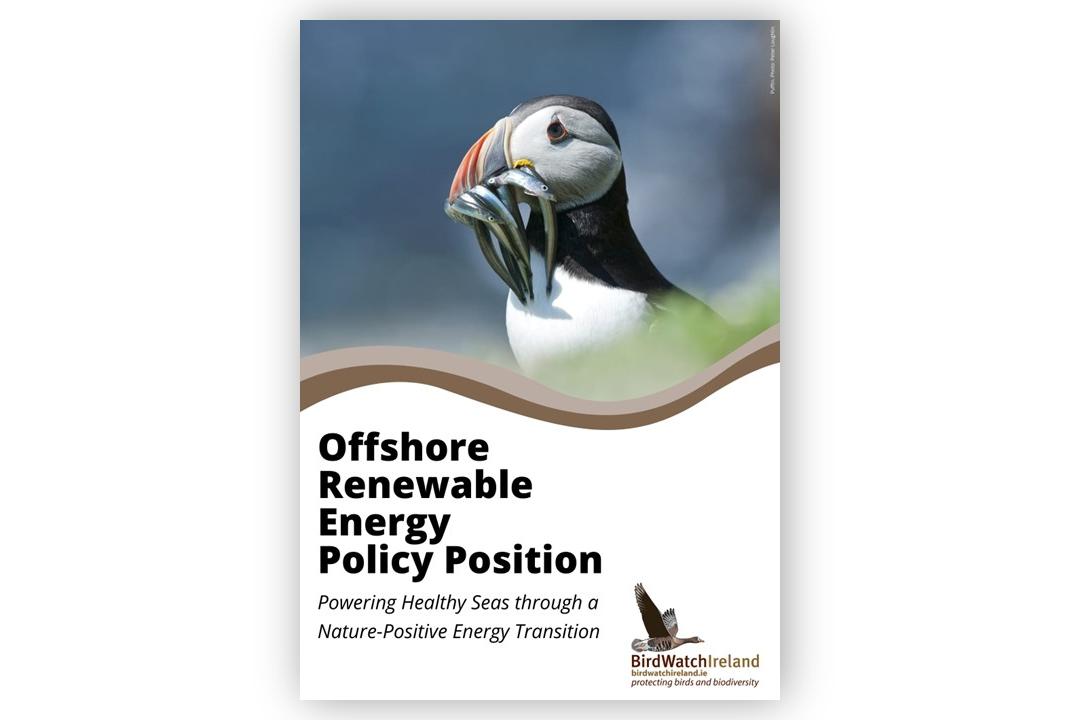
BirdWatch Ireland’s Policy Position on Offshore Renewable Energy – A summary
Climate change poses a huge threat to people and biodiversity. Renewable energy is one of the key tools that we can use to eliminate fossil fuel use to cut greenhouse gas emissions, address climate change and meet our national and EU climate commitments. Offshore Renewable Energy (ORE) is a proven technology that has a key role to play in the renewable energy transition.
However, as we face the twin climate and biodiversity crises, it is vital that we do not create or exacerbate another problem in our efforts to solve another. To ensure the energy transition at sea does not contribute to further losses of nature, the protection and restoration of marine ecosystems must be pursued hand in hand with, and with equal ambition to, the expansion of offshore renewables.
We are often contacted by members of the public seeking our stance on proposed offshore wind projects. Our answer in short: it depends. While BirdWatch Ireland supports the production of renewable energy and offshore wind, it is vital that ORE devices and infrastructure are sensitively located to minimise negative impacts on seabirds, marine and terrestrial ecosystems, and other biodiversity including terrestrial bird species. The relationship between ORE developments and birds is complex and depends on a number of factors, including the location, extent and type of development and associated infrastructure, the bird species present and their distribution and abundance at different times of the year.
ORE developments are critical to a safe future, and they have potential positive environmental, social and economic benefits. However, these must not be compromised by poor planning and lack of due diligence when it comes to environmental impacts. There needs to be a very context-specific approach taken in each area, one which considers the needs of habitats and wildlife as well as local communities. All decisions should be backed by the latest and most robust science, sensitivity mapping and through ecological assessment based on the strict application of EU environmental law. Where there are gaps in the data or where there is the likelihood of significant adverse impacts will be caused by a development, we advocate for developments to be avoided.
We are working on multiple fronts to ensure bird and habitat conservation, and the energy transition can coexist successfully. Our work in this realm includes gathering crucial data on seabirds and waterbirds, active conservation work, influencing marine policy, and collaborating with our conservation partners around the globe to expand our knowledge on bird foraging, breeding roosting and movement patterns and how ORE can affect this.
In 2024, we also partnered with several wind farm companies to undertake monitoring of populations and productivity at colonies in the Irish Sea where more data is needed. These data will be added to the UK-Irish Seabird Monitoring Programme database, which is accessible to the public upon registration. This work will inform responsible decision-making by Government on future ORE developments. It is important to stress that this collaboration was on condition that it did not jeopardise our position as an independent conservation organisation.
Download our full Offshore Renewable Energy Policy Position document below.

